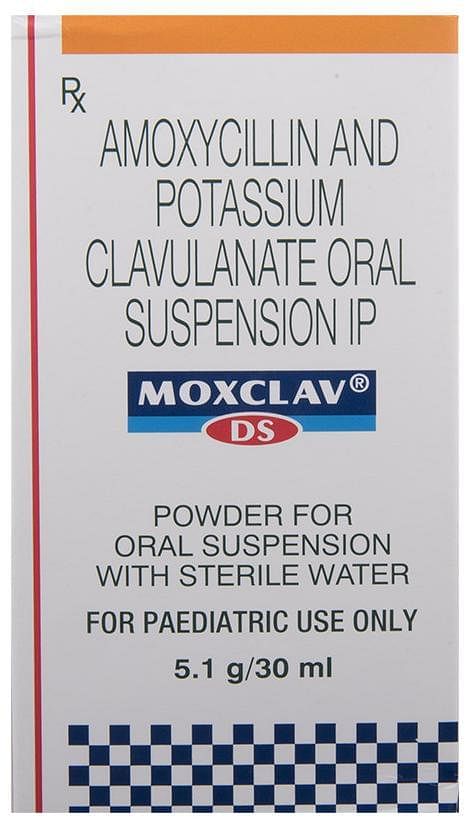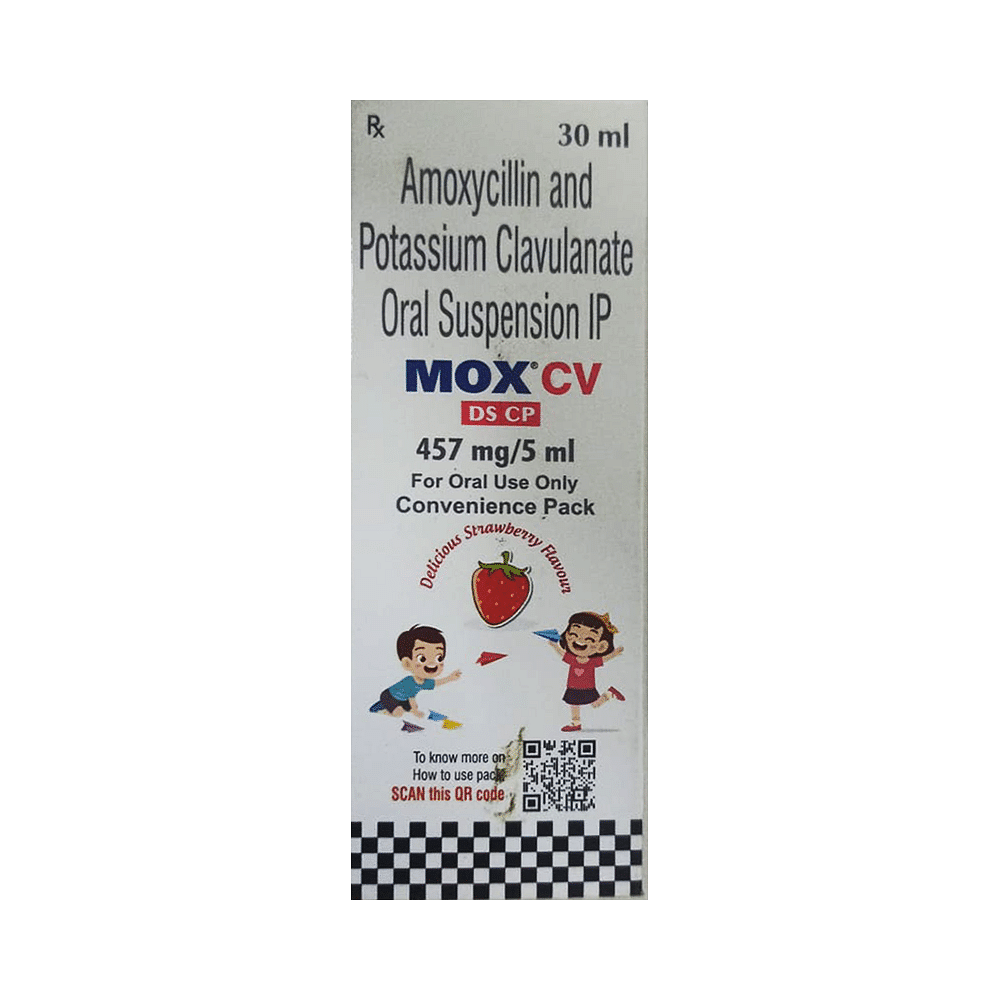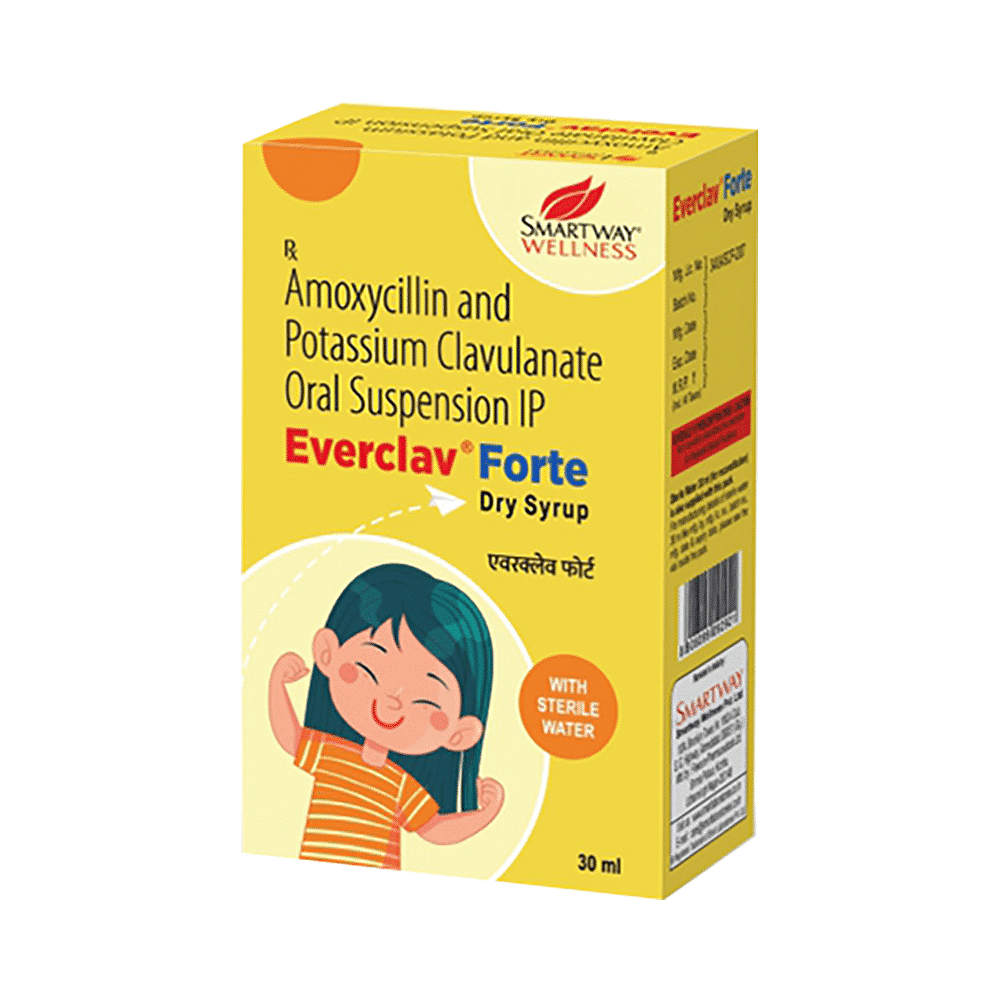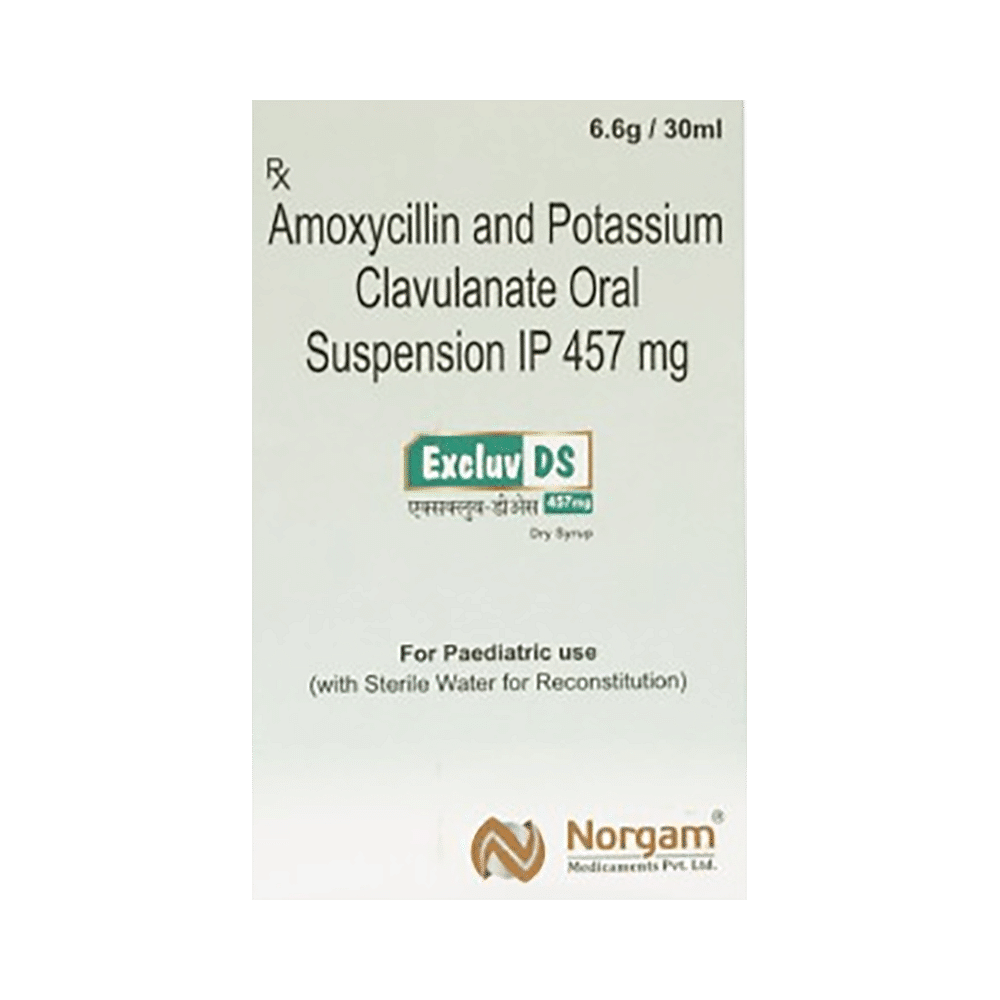
Fealmox CV Forte Oral Suspension
Manufacturer
Fealth Life Care Pvt. Ltd.
Salt Composition
Amoxycillin (400mg) + Clavulanic Acid (57mg)
Key Information
Short Description
Fealmox CV Forte Oral Suspension is an antibiotic medicine that helps treat bacterial infections of the ear, nose, throat, chest, lungs, teeth, skin, and urinary tract.
Dosage Form
Oral Suspension
Introduction
Fealmox CV Forte Oral Suspension is an antibiotic medicine that helps treat bacterial infections of the ear, nose, throat, chest, lungs, teeth, skin, and urinary tract. It is capable of killing bacteria that have become resistant to other therapies and thus also helps treat tuberculosis that is resistant to other treatments.
Directions for Use
Your child must complete the entire course of antibiotics. Stopping too soon may cause the bacteria to multiply again or cause another infection.
How it works
Fealmox CV Forte Oral Suspension is an antibiotic. It has two active agents amoxycillin and clavulanic acid. Amoxycillin works by preventing the formation of the bacterial protective covering (cell wall) essential for the survival of the bacteria. Whereas clavulanic acid serves a special purpose of inhibiting an enzyme (beta-lactamase) that is produced by resistant bacteria. This makes the combination of amoxycillin and clavulanic acid an effective line of treatment for many types of infections.
Quick Tips
Your child must complete the entire course of antibiotics. Stopping too soon may cause the bacteria to multiply again or cause another infection. Your child may have a bitter taste in the mouth after the intake of Fealmox CV Forte Oral Suspension. Eating citrus fruit or sipping plenty of water or fruit juice may help. Encourage your child to drink plenty of water in case diarrhea develops as a side effect. Never give Fealmox CV Forte Oral Suspension until and unless prescribed by the doctor. Do not give Fealmox CV Forte Oral Suspension to treat common cold and flu-like symptoms caused by viruses. Never save medicine for future illnesses. Check ‘expiry’ before giving Fealmox CV Forte Oral Suspension to your child. Immediately discard all the expired medicines. Stop Fealmox CV Forte Oral Suspension immediately if your child develops an itchy rash, facial swelling, or breathing difficulty. Report to the doctor without any delay.
Related Medicines

Moxclav DS 457mg Oral Suspension

Mox CV DS CP Oral Suspension Delicious Strawberry

Everclav Forte Dry Syrup

Aklox-CV Duo Dry Syrup

Moxyvil CV Dry Syrup

Kavmox-DDS Dry Syrup

Claviox 457 Dry Syrup

Excluv DS 457mg Dry Syrup

Sudox-DS Dry Syrup

Joymentin DS Oral Suspension
Frequently asked questions
Can other medicines be given at the same time as Fealmox CV Forte Oral Suspension?
Fealmox CV Forte Oral Suspension can sometimes interact with other medications or substances. It is important to inform your child's doctor about any other medications your child is taking before starting Fealmox CV Forte Oral Suspension. You should also check with your child’s doctor before giving any medicine to your child.
Can I get my child vaccinated while on treatment with Fealmox CV Forte Oral Suspension?
Antibiotics typically do not interfere with the ingredients in vaccines or cause a negative reaction in children who have just received one. However, it is recommended that children avoid vaccination until they have recovered from any illness. Once your child recovers, you can administer the vaccine.
Which lab tests may my child undergo while taking Fealmox CV Forte Oral Suspension on a long-term basis?
Periodically, the doctor might perform kidney and liver function tests if the treatment continues for an extended period to monitor your child's condition.
Can I give a higher than the recommended dose of Fealmox CV Forte Oral Suspension to my child?
Giving a dose greater than the recommended level can increase the risk of side effects. If your child experiences worsened symptoms, please contact your doctor for an evaluation.
Can I stop giving Fealmox CV Forte Oral Suspension to my child when the symptoms are relieved?
Do not stop administering this medication unless the complete course of treatment is completed, even if you feel better. Symptoms may improve before the infection is completely eradicated. Therefore, continue with the prescribed dose for the full duration as there might be continued beneficial effects.
Can the use of Fealmox CV Forte Oral Suspension cause diarrhea?
Yes, Fealmox CV Forte Oral Suspension can cause diarrhea. This medication kills harmful bacteria, and in addition to that, it may affect the beneficial bacteria in your child's stomach and trigger diarrhea. Encourage your child to drink fluids if they experience diarrhea. If diarrhea persists or you notice signs of dehydration like a decrease in urination with dark-colored and strong-smelling urine, consult your doctor before administering any other medication.
Do all viral common colds result in secondary bacterial infection?
Viral infections usually do not cause secondary bacterial infections. Antibiotics should be administered only after consulting a healthcare provider if the situation arises.
The mucus coming out of my child’s nose is yellow-green. Is this a sign of a bacterial infection?
Yellow or green mucus in the nose doesn't automatically indicate the need for antibiotics. A common cold usually involves thickening and color changes to mucus. These symptoms typically last for 7-10 days.
Is there any sign which shows that my child needs immediate medical attention?
If your child experiences severe allergic reactions (breathing problems, skin rashes), gastrointestinal infections (diarrhea), or liver damage (weakness, paleness, vomiting) it is important to contact your child's doctor immediately. While rare, these side effects require expert attention.


